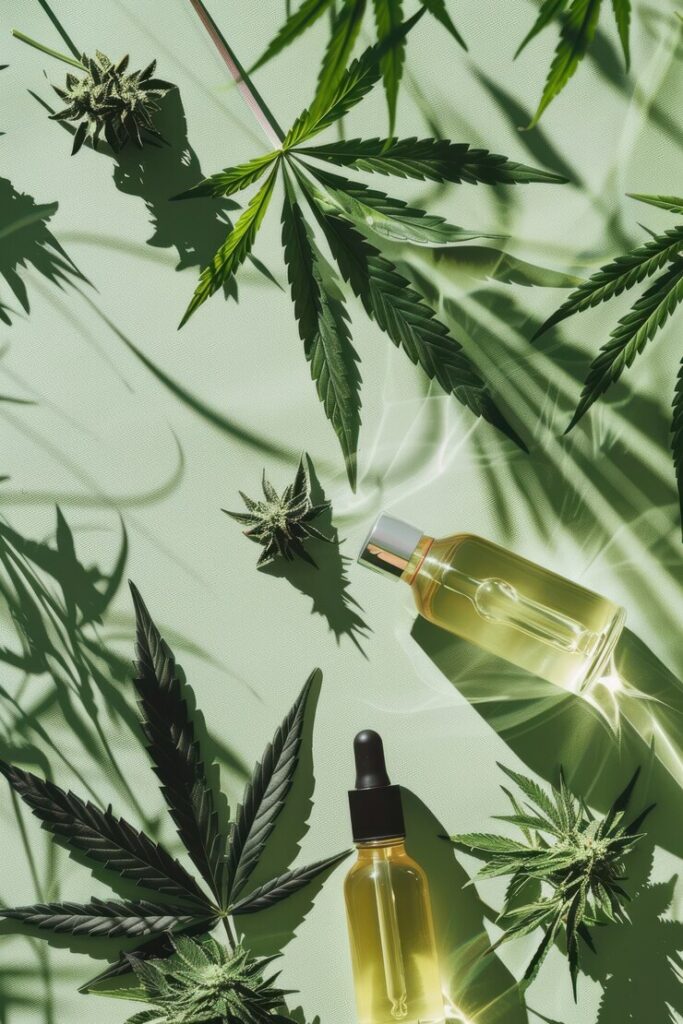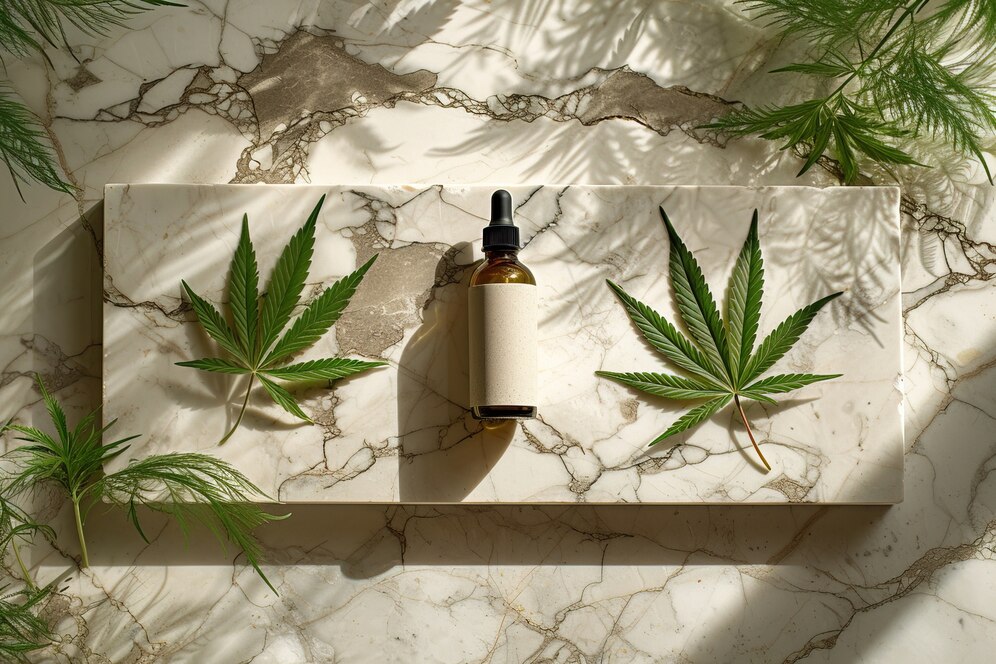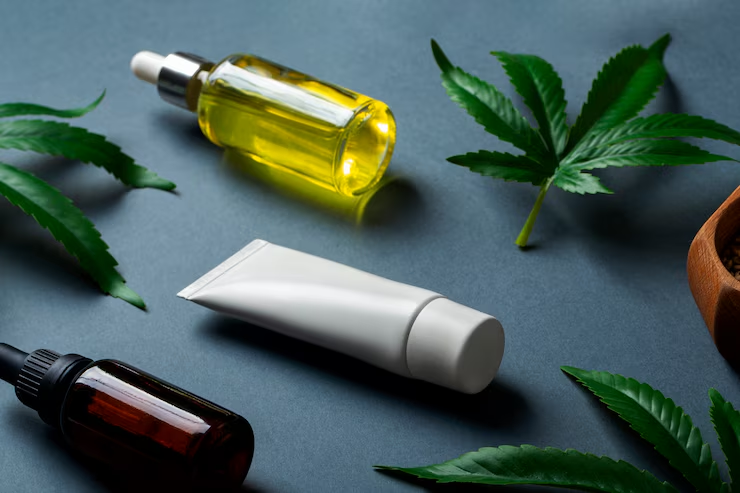CBD vs THC: Key Differences and Why They Matter
Decoding the Cannabis Plant: CBD vs. THC: Key Differences and Why They Matter
The cannabis plant is a treasure trove of natural compounds, with cannabidiol (CBD) and delta-9 tetrahydrocannabinol (THC) being the two most prominent. While both are cannabinoids and share a common origin, their effects, legality, and applications differ significantly. Understanding these distinctions is crucial for anyone interested in exploring the potential benefits of cannabis-derived products, especially within the UK market. So, let’s dive into the key differences between CBD vs THC and explore why they truly matter.
What is CBD? The Non-Psychoactive Powerhouse
Cannabidiol, or CBD vs THC, is a non-psychoactive cannabinoid found in both hemp and cannabis plants. It has gained immense popularity in recent years for its potential therapeutic properties without inducing the “high” commonly associated with cannabis.
In the UK, CBD vs THC products are legal as long as they meet specific criteria, including a THC content of less than 0.2%. CBD interacts with the body’s endocannabinoid system (ECS), a complex network of receptors that plays a role in regulating1 various functions like mood, sleep,2 pain, and inflammation. However, unlike THC, CBD doesn’t directly bind to the primary psychoactive receptors (CB1 receptors) in the brain, which is why it doesn’t cause intoxication.
What is THC? The Psychoactive Compound

Delta-9 tetrahydrocannabinol, or THC, is the primary psychoactive compound found in cannabis plants. It’s responsible for the euphoric “high” that cannabis is known for. THC exerts its effects by directly binding to the CB1 receptors in the brain, leading to alterations in mood, perception, and cognition.
While THC also has potential therapeutic applications, its psychoactive nature and legal status vary significantly across the globe, including within different regions of the UK. In the UK, cannabis containing more than 0.2% THC is classified as a controlled substance and is generally illegal for recreational use, although medical cannabis is available under specific circumstances with a prescription.
CBD vs. THC: The Key Differences Explained
To truly understand CBD vs THC, let’s break down their key distinctions across several important aspects:
| Feature | CBD (Cannabidiol) | THC (Delta-9 Tetrahydrocannabinol) |
| Psychoactive Effects | Non-psychoactive; does not cause a “high” | Psychoactive; induces a euphoric “high” |
| Source | Found in both hemp and cannabis plants (often derived from hemp for legal CBD products in the UK) | Primarily found in cannabis plants |
| Legality (UK) | Legal if THC content is below 0.2% | Generally illegal for recreational use (medical cannabis available with prescription) |
| Medical Benefits | Research suggests potential benefits for anxiety, pain, inflammation, sleep, and more. Widely available over-the-counter in the UK. | Research suggests potential benefits for pain relief, nausea, appetite stimulation, and more. Requires a prescription in the UK. |
| Side Effects | Generally well-tolerated; potential mild side effects like drowsiness or dry mouth are rare. | Can cause side effects like anxiety, paranoia, increased heart rate, impaired coordination, and memory problems. |
| Drug Testing | Typically not screened for in standard drug tests. However, full-spectrum CBD products may contain trace amounts of THC that could potentially trigger a positive result in sensitive tests. | Standard drug tests screen for THC and its metabolites. |
| ECS Interaction | Primarily interacts indirectly with the ECS, influencing receptors and endocannabinoid levels. | Directly binds to CB1 receptors in the brain and nervous system. |
Why Do These Differences Matter?
Understanding the differences between CBD vs. THC is crucial for several reasons, particularly for consumers in the UK:
- Choosing the Right Product for Your Needs: If you’re seeking potential relief from anxiety or pain without the intoxicating effects, CBD vs THC is likely the preferred option. Conversely, if you’re looking for the psychoactive effects or have a medical condition for which THC is prescribed, that would be the relevant choice.
- Navigating the Legal Landscape: In the UK, knowing the THC content of cannabis-derived products is essential for staying within the bounds of the law. CBD products with less than 0.2% THC are widely available, while THC-rich cannabis is generally illegal for recreational use.
- Avoiding Unwanted Psychoactive Effects: For individuals who want to avoid the “high” associated with cannabis, understanding that CBD is non-psychoactive is key. This allows them to explore the potential benefits of cannabinoids without experiencing intoxication.
- Considering Drug Testing: If you are subject to drug testing (e.g., for employment), it’s important to be aware that while standard tests typically don’t screen for CBD, some full-spectrum CBD products might contain trace amounts of THC that could potentially lead to a positive result on highly sensitive tests. Choosing broad-spectrum or CBD isolate products can mitigate this risk.
The Entourage Effect: How CBD and THC Can Work Together (Legally in the UK)

While CBD vs THC have distinct effects on their own, they can also interact with each other and other compounds in the cannabis plant, such as terpenes and flavonoids, to create what’s known as the “entourage effect.” This theory suggests that these compounds work synergistically to enhance the overall therapeutic benefits of the plant.
In the UK, while high-THC cannabis is restricted, legal CBD products may contain trace amounts of other cannabinoids and terpenes (in full-spectrum options) that could contribute to a mild entourage effect without causing intoxication. Understanding this concept can help consumers choose the type of CBD product that best suits their needs.
Conclusion: Making Informed Choices in the World of Cannabinoids
The distinction between CBD vs THC is fundamental to understanding the diverse world of cannabis-derived products. While both cannabinoids offer potential benefits, their differing effects, legal statuses, and applications mean that consumers need to be well-informed to make the right choices for their individual needs and preferences, especially within the specific legal framework of the UK. By understanding these key differences, you can confidently navigate the market and explore the potential of cannabinoids for your well-being.
Frequently Asked Questions (FAQs)

1. In the UK, can I legally buy CBD products that contain THC?
In the UK, it is legal to buy CBD products that contain THC, but only if the THC content is below 0.2%. These products are often referred to as full-spectrum CBD. Products with a THC content above 0.2% are classified as controlled substances and are generally illegal for recreational use in the UK. However, medical cannabis containing higher levels of THC can be prescribed by a specialist doctor for specific medical conditions. So, when purchasing CBD vs THC products in the UK, always check the THC content to ensure compliance with the law.
2. If I take CBD oil in the UK, will it show up on a drug test for THC?
Standard drug tests typically screen for THC and its metabolites, not CBD. However, full-spectrum CBD products, which are legal in the UK (containing less than 0.2% THC), may contain trace amounts of THC. While the levels are usually very low, there is a theoretical possibility that these trace amounts could accumulate in the body over time and potentially trigger a positive result on a highly sensitive drug test, especially with frequent and high dosages of full-spectrum CBD. If you are subject to drug testing, you might consider using broad-spectrum CBD products (which have THC removed) or CBD isolate products to minimize this risk when choosing between CBD vs THC products.
3. Are the potential medical benefits of CBD and THC the same?
While both CBD and THC have potential therapeutic properties, they interact with the body in different ways and may be more effective for different conditions. Research suggests that CBD may be beneficial for anxiety, pain, inflammation, and sleep disorders, among other things. THC has shown promise in areas like pain relief, nausea reduction, appetite stimulation (particularly in conditions like cancer and HIV/AIDS), and muscle spasticity. In the UK, medical cannabis containing THC is prescribed for specific conditions where conventional treatments have been ineffective. Understanding these different potential benefits is key when considering CBD vs THC for your health needs.
4. Can I get the “high” from CBD products that are legal in the UK?
No, you should not get a “high” from CBD products that are legal in the UK. UK law mandates that legal CBD products must contain less than 0.2% THC, which is a very low concentration and not sufficient to produce psychoactive effects in most people. The “high” associated with cannabis is primarily caused by the higher levels of THC found in cannabis strains that are illegal for recreational use in the UK. Therefore, when you purchase legal CBD vs THC products in the UK, you are primarily getting the potential benefits of CBD without the intoxicating effects of THC.







